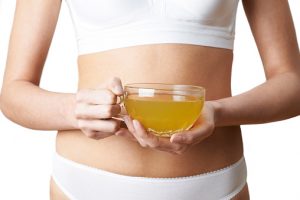Dieting is never easy, nor is there a “quick fix” for weight loss on the market that comes without some risk.
The latest trend seems to be detox teas. The active ingredient in most of the teas is caffeine. Caffeine can produce side effects such as nervousness, stomach irritation, nausea, vomiting, anxiety and agitation, headache, ringing in the ears as well as increased heart and breathing rates.
As an appetite suppressant, products containing caffeine may work for the short term. Often times detox teas that combine caffeine with a diuretic that may trigger a false sense of weight loss since diuretics cause a loss of water weight, not actual body fat.
Additionally, the caffeine in the teas may cause you to have insomnia. Studies have shown that a lack of sleep can trigger excessive eating and even slow your metabolism causing you to gain weight.
Nutritionists and healthcare professionals agree that there is no magic formula to weight loss. The best way to plan for weight loss is to start with a visit to your doctor, make healthy food choices, implement portion control when eating and start a light exercise regimen slowly building as your endurance increases. The formula for keeping the weight off is to retrain your brain so that you can maintain your new healthier lifestyle.
If you are thinking about taking off a few pounds and would like to speak with a health care professional at Flushing Hospital Medical Center, please call 718-670-5486 to schedule an appointment.
All content of this newsletter is intended for general information purposes only and is not intended or implied to be a substitute for professional medical advice, diagnosis or treatment. Please consult a medical professional before adopting any of the suggestions on this page. You must never disregard professional medical advice or delay seeking medical treatment based upon any content of this newsletter. PROMPTLY CONSULT YOUR PHYSICIAN OR CALL 911 IF YOU BELIEVE YOU HAVE A MEDICAL EMERGENCY.


